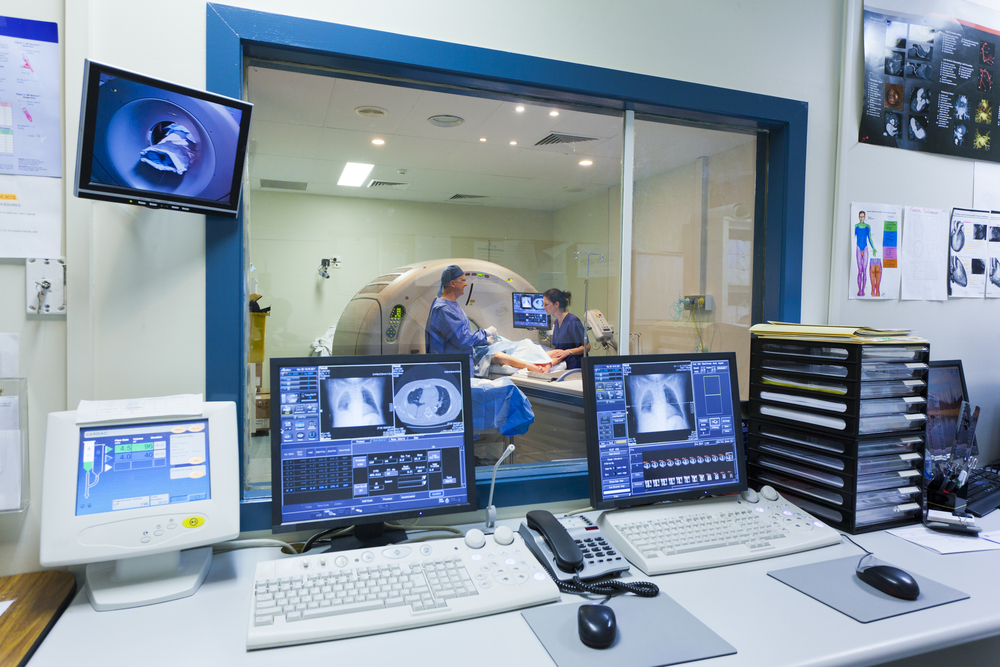Being referred for an MRI can be a daunting experience, especially if it is your first time. Patients will normally be referred for an MRI during the diagnosis process when their doctor is trying to determine what is wrong with the patient and how they can best be treated. If you have been referred for an MRI and want to learn more about the process and what takes place, we’ve provided a comprehensive guide below.
What Is An MRI?
An MRI Machine is a large doughnut-shaped scanner that uses electromagnetics and radio waves to provide highly detailed scans of inside a patient’s body. The word MRI stands for Magnetic Resonance Imaging and these machines can cost tens of thousands of pounds simply to turn on, in addition to the material and installation costs. MRI machines produce images that are more detailed than traditional CT Scans and are commonly used in the identification and measuring of cancerous tumors to determine the length, type, and intensity of treatment, such as chemotherapy, radiotherapy or proton beam therapy.
The type of MRI machine varies from location to location, with more advanced, state-of-the-art machines that make less noise available in privately funded hospitals.
Why Do I Need an MRI?
Doctors and specialists can look at the scans and see detailed images of muscles and soft tissues and identify anything that might be causing pain or infection. If you’ve come to the doctor to get to the root of a health issue, you may be referred for an MRI scan to enable the doctors to see better what might be causing your ill health.
How Long Does an MRI Last?
Normally, MRI scans only last for a short time and the patient will enter the machine in the direction that allows the shortest amount of time to make a high-quality scan. Patients should expect to spend between 15-90 minutes on the scanning bed, although your MRI specialist on the day will be able to provide a closer estimated scan time.
How Should I Prepare for My MRI Scan?
Before your scan, you will be advised if you are able to eat, drink and take medications as normal, however, it is common practice for patients to continue as normal before their scan. In some circumstances, patients may be asked to eat or drink nothing for four hours prior to their scan or be asked to drink a large amount of water, depending on the area to be scanned.
Patients will then be asked to dress in a hospital provided a gown and remove all jewelry and accessories, especially those made of or containing metal as this can be attracted to the scanner which uses large, strong magnets. If a gown is not provided, ensure all your clothing is free of fastenings, zips, buttons, and buckles and that female patients wear a bra without an underwire.
During the MRI Scan
Going for an MRI scan is a painless procedure and patients, unless severely claustrophobic, will not need any anesthesia to undergo the scan. Patients that do suffer from severe claustrophobia can request a mild sedative to help them remain still and calm during the scanning process. Very young children and babies will also be offered a mild sedative as it is important to lay completely still during the MRI scan, to ensure the MRI produces the clearest scans it’s capable of. If the patient is unable to remain still during their scan, they will have to keep being scanned until the radiographer can receive a clear image.

During the procedure, patients lie on a motorized platform bed attached to the MRI machine, with their head or feet pointed towards the machine depending on the area of the body to be scanned. Some patients may be given a frame to hold during their scan, this scan helps the MRI identify specific points within the body to provide a clearer scan result and higher-quality image.
Due to the nature of parts in the MRI machine, it is not uncommon for MRI machines to be quite loud during the scanning process or make a series of loud tapping noises during the scan. This is completely normal, and patients shouldn’t be concerned, however, should request ear defenders if they suffer sensitivity to loud noises.
Will I Receive My Results Straight Away?
Scans produced from MRI machines need to be studied and discussed in detail between the radiologist and potentially further specialists before the results are sent back to your doctor. Once your doctor has received your scan results, which can take up to several weeks depending on the type of healthcare you are using, they will request a meeting to discuss your results in detail and the course of treatment determined. Should the scan results be unclear or indicate a need for further tests, your doctor will arrange this for you.
After Your Scan
As MRI scans normally last for up to 90 minutes, there isn’t any need for patients to stay overnight and unless the patient has been given any sedatives, they are perfectly fine to drive themselves home after their scan has finished. Should the patient have needed a sedative for their scan, it’s recommended to not undertake any mentally or physically taxing activities for at least 24 hours and be monitored where possible.
MRI scans can seem quite scary, but they don’t have to be and should be admired for the incredible medical machines they are. Not only helping to make our diagnosis process much easier and faster but offering an extremely less invasive procedure for both the patient and healthcare professionals. If you are worried about an upcoming MRI scan, talk to your doctor to relieve your fear or ask about receiving sedation during your scan.




